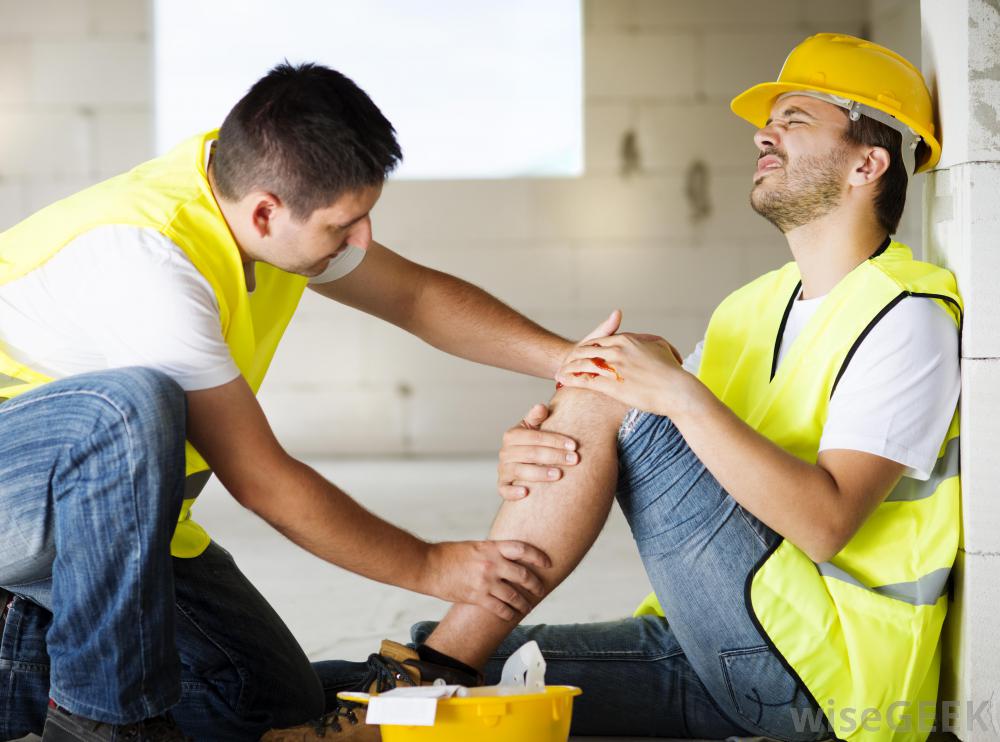Amputation injuries are among the most severe outcomes of workplace accidents, often altering the course of a person’s life. These injuries involve the removal of a body part, either entirely or partially, for the sake of preserving the individual’s overall health. Whether it’s a limb, finger, or toe, the impact of an amputation is profound and far-reaching. For those affected, navigating the legal, medical, and financial complexities can be challenging to say the very least. An experienced amputation injury lawyer can support you at every stage, helping you and your loved ones however necessary.
The aftermath of an amputation often includes prolonged recovery periods filled with physical therapy, adjustments to daily routines, and emotional challenges. Additionally, complications like infections, nerve damage, and chronic pain may arise, making it essential to have adequate resources and support. A workers’ compensation attorney helps victims navigate the legal avenues to secure compensation for medical treatments, rehabilitation, and other necessary care.
Are There Different Types of Amputation Injuries?
Yes. Amputation injuries can vary widely in severity. Some involve the complete removal of a body part, while others are partial, leaving some tissue intact. Partial amputations, though less extreme in appearance, still present significant challenges. Medical intervention, such as reattaching severed limbs, is complex and not always successful.
Amputation injuries are generally categorized into those affecting the upper or lower extremities. Lower extremity amputations include transfemoral amputations, which involve removing the limb above the knee, and transtibial amputations, where the knee is preserved. Partial foot amputations and digit amputations (toes) are also common.
Upper extremity amputations can range from losing a finger to the removal of an entire arm. Each type of amputation brings unique challenges, such as adapting to prosthetics or relearning daily tasks.
Amputation injuries in workplace settings, unfortunately, can happen in so many different ways. Most often, they result from accidents involving heavy machinery, construction equipment, or other hazardous conditions. Other causes may include vehicular accidents, falls from significant heights, or incidents involving defective tools and equipment.
California workers’ compensation law is designed to provide financial relief for victims, covering medical expenses, lost wages, and other damages. By working with an experienced attorney, injured workers can build a strong case to claim the benefits they are entitled to.
When Should I File a Workers’ Compensation Claim?
In short, as quickly as you can. The legal timeframe to file a workers’ compensation claim varies, but California law typically allows injured workers up to two years from the date of the accident. However, claims involving government entities may have a shorter window, often as little as six months. Acting quickly is crucial to preserving evidence and ensuring that deadlines are met.
Belal can streamline the process by gathering medical records, consulting with experts, and negotiating with insurance companies on behalf of the injured worker. This ensures that the claim is filed accurately and includes all necessary documentation to support the case.
For injured workers who may not have immediate access to medical care, Belal can connect them with medical professionals who, like Belal, work on contingency. This arrangement allows individuals to receive necessary treatments without upfront payments, with costs covered by the eventual settlement.
What Compensation is Available for Amputation Injuries?
Medical expenses alone can include emergency care, surgeries, hospital stays, physical therapy, prosthetics, and ongoing treatment for complications. Workers’ compensation benefits are designed to cover these costs, ensuring that victims receive the care they need.
Additionally, workers who are unable to return to their previous roles may receive compensation for lost wages and reduced earning capacity. Amputation injuries can also lead to emotional trauma, loss of enjoyment of life, and other non-economic damages. Belal can help quantify these losses and pursue maximum compensation.
Amputation settlements are often higher than those for other injuries due to the lasting impact on the victim’s life. These settlements reflect the costs of medical care, emotional suffering, and the long-term challenges of living with a disability. Belal has helped many to recover maximum compensation for at-work injuries.
An Experienced Amputation Injury Lawyer to Support You
Amputation injuries require not only physical recovery but also significant legal and financial considerations. A workers’ compensation attorney provides invaluable support during this process, advocating for the injured worker’s rights and ensuring they receive fair compensation. By handling the legal complexities, Belal allows the victim to focus on recovery and adapting to their new circumstances.
Additionally, cases are handled on a contingency basis, meaning there are no upfront legal fees, and payment is only required after a settlement is reached.
For individuals facing the challenges of an amputation or permanent disability, seeking legal assistance promptly is essential. Belal can guide the victim through every step of the process, offering the expertise and dedication necessary to achieve a favorable outcome. For a free case evaluation, send a message through this site or call.

